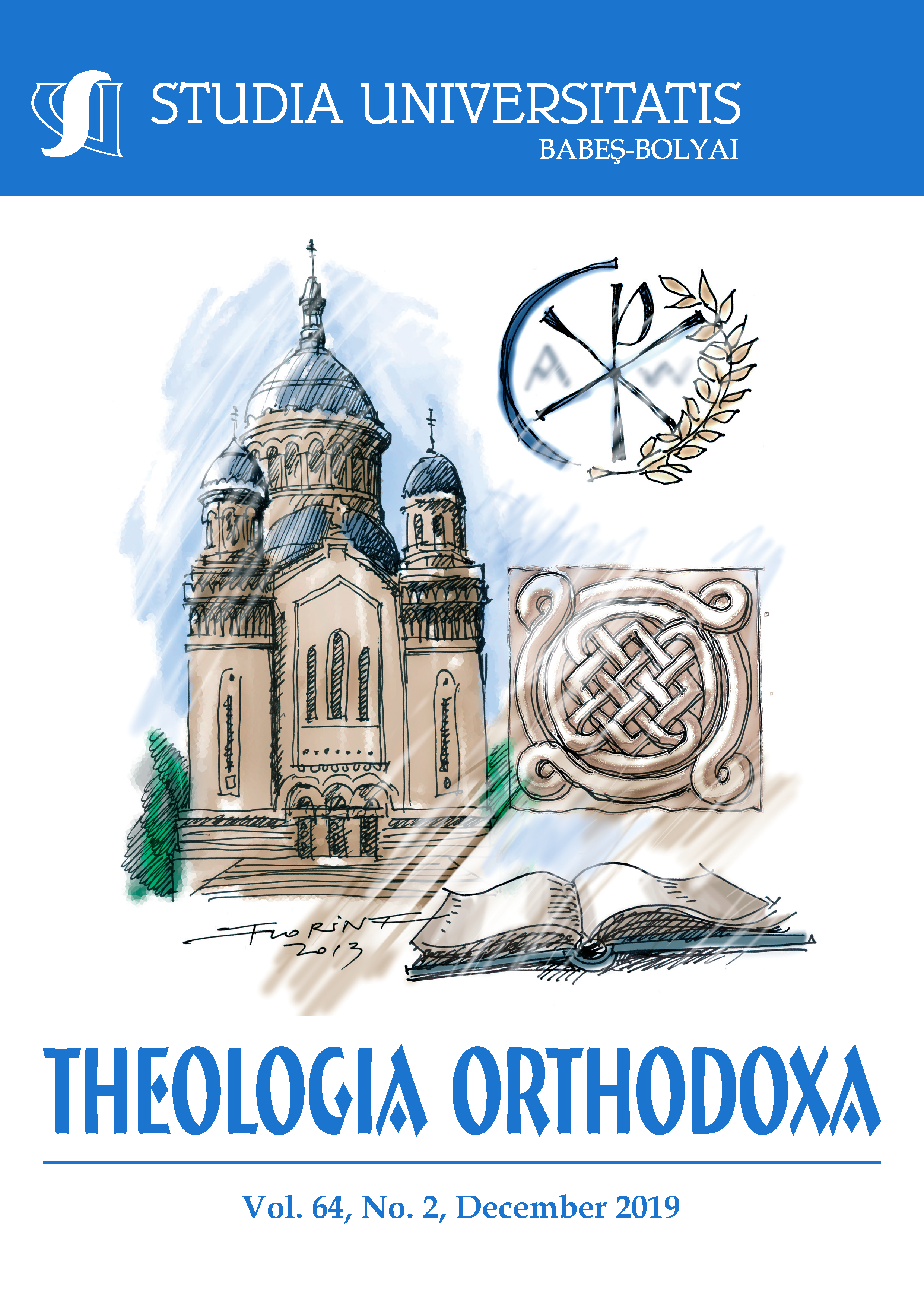SPIRITUAL CARE FOR THE ELDERLY: OFFERING THE OPPORTUNITY TO TALK ABOUT DEATH
DOI:
https://doi.org/10.24193/subbto.2019.2.08Keywords:
spiritual care, elderly, death, Romanian villagesAbstract
To speak of the Romanian village today is to consider a reality of life populated more and more by elderly people and children whose parents work outside the home, in town, or even abroad. The quality of life of the elderly remaining in the village is, in this context, a major concern for the political authorities and religious leaders. Indeed, many studies have shown that taking into account the religious and spiritual dimension contributes to the well-being of seniors. Recent research in Switzerland has highlighted the fact that many elderly people who live in senior care facilities are interested in talking about death with someone they trust. This trusted person is not necessarily the priest or chaplain. For many residents, this role is given to someone within the elderly person’s network of family and friends (spouse, daughter, niece, close friend, etc.). What happens when this network is empty and the elderly person is more isolated? We propose to think about how these observations can be transposed into a practice of spiritual care adapted to the context of the Romanian village.
References
Brandt, Pierre-Yves, Karine Laubscher, L. Gamaiunova, and Zhargalma Dandarova Robert. “Vieillir en institution en Suisse romande: La prise en compte de la spiritualité pour favoriser le bien-être.” Working paper n°12, ISSR, Université de Lausanne, Lausanne, Switzerland, 2017, https://www.unil.ch/issr/files/live/sites/issr/files/shared/Publications/WP_WorkingPapers/WorkingPaper_12_ISSR_FTSR_UNIL.pdf.
Bodogai, Simona I., Stephen J. Cutler. “Aging in Romania: Research and Public Policy.” The Gerontologist 54, no. 2 (2013): 147–152, DOI:10.1093/geront/gnt080
Jackson, David, Colleen Doyle, Hannah Capon, and Elizabeth Pringle. “Spirituality, Spiritual Need, and Spiritual Care in Aged Care: What the Literature Says.” Journal of Religion, Spirituality & Aging 28, no. 4 (2016): 281-295. DOI: 10.1080/15528030.2016.1193097
La Cour, P., N. H. Ausker, and Niels Christian Hvidt. “Six Understandings of the Word ‘Spirituality’ in a Secular Country.” Archive for the Psychology of Religion 34 (2012): 63-81.
Manzano, A., C. Swift, S. J. Closs, and M. Briggs. “Active Listening by Hospital Chaplaincy Volunteers: Benefits, Challenges and Good Practice.” Health and Social Care Chaplaincy 3, no. 2 (2015): 201-221.
Nancu, Daniela Violeta, Liliana Guran-Nica, and Mihaela Persu. “Demographic Ageing in Romania’s Rural Area.” Human Geographies: Journal of Studies and Research in Human Geography 4 (2010): 33-42.
Narayanasamy, A. Spiritual Care: A Practical Guide for Nurses. Lancaster, UK: Quay/BKT, 1991.
National Health Service Scotland. Guidelines on Chaplaincy and Spiritual Care in the NHS Scotland. Glasgow, UK: NHS Education for Scotland, 2009.
United Nations, Department of Economic and Social Affairs, Population Division. World Population Ageing 2015. ST/ESA/SER.A/390 (2015).
United Nations, Economic Commission on Europe. Older Persons in Rural and Remote Areas. Policy Brief on Ageing no. 18. UN ECE/WG.1/25 (March 2017), http://www.unece.org/population/ageing/policybriefs.html.
Vachon, Mélanie, Lise Fillion, and Marie Achille. “A Conceptual Analysis of Spirituality at the End of Life.” Journal of Palliative Medicine 12 (2009): 53-59. DOI: 10.1089/jpm.2008.0189
Zimmer, Zachary, Carol Jagger, Chi-Tsun Chiu, Mary Beth Ofstedal, Florencia Rojo, and Yasuhiko Saito. “Spirituality, Religiosity, Aging, and Health in Global Perspective: A Review.” SSM-Population Health 2 (2016): 373-381.
Downloads
Published
How to Cite
Issue
Section
License
Copyright (c) 2019 Studia Universitatis Babeș-Bolyai Theologia Orthodoxa

This work is licensed under a Creative Commons Attribution-NonCommercial-NoDerivatives 4.0 International License.





 ISSN (print): 1224-0869, ISSN (online): 2065-9474, ISSN-L: 2065-9474
ISSN (print): 1224-0869, ISSN (online): 2065-9474, ISSN-L: 2065-9474